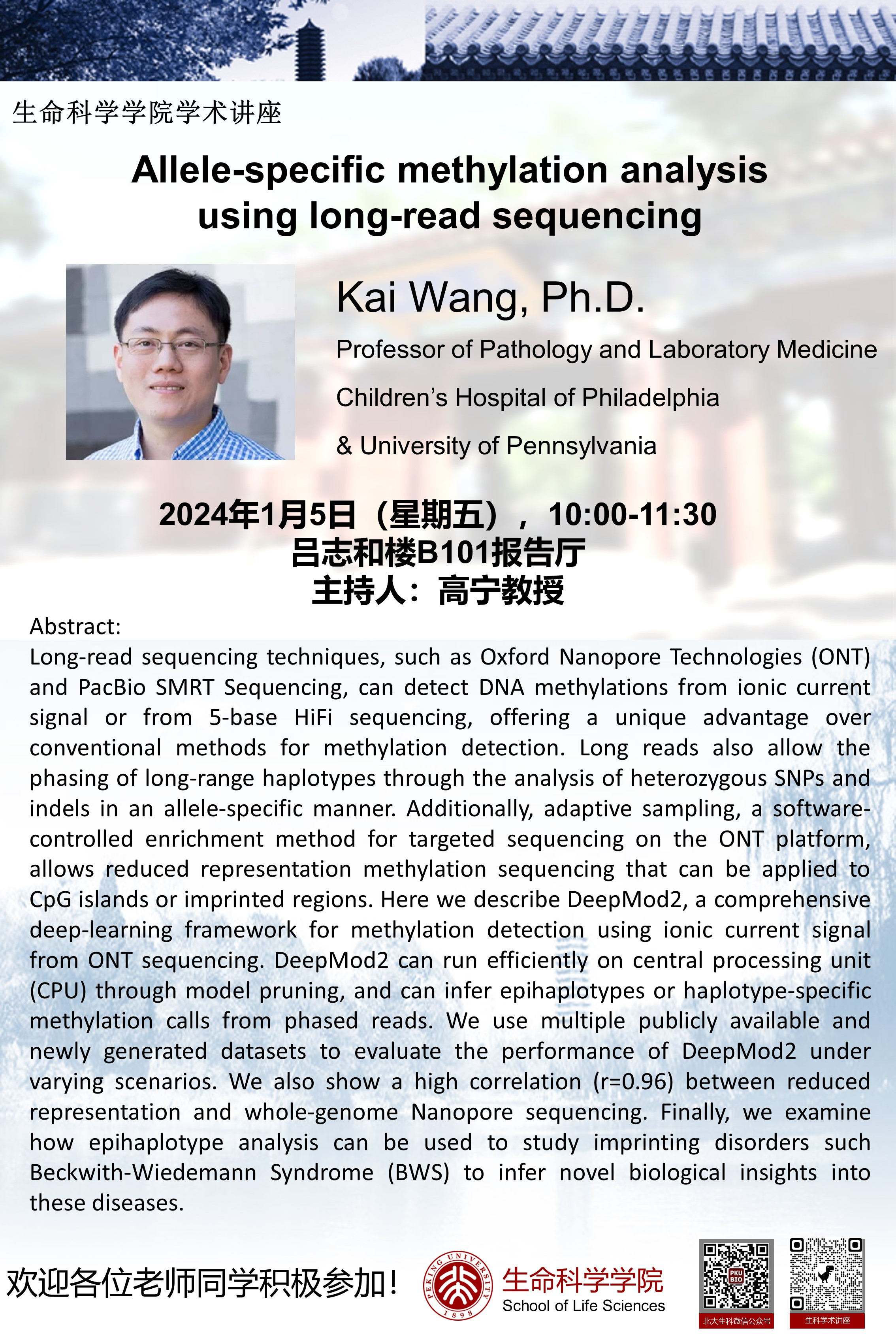
Speaker: Kai Wang, Ph.D., Professor of Pathology and Laboratory Medicine, Children's Hospital of Philadelphia & University of Pennsylvania
Time: 10:00-11:30 a.m., January 5, 2024, GMT+8
Venue: B101, Lui Che-woo Building, PKU
Abstract:
Long-read sequencing techniques, such as Oxford Nanopore Technologies (ONT) and PacBio SMRT Sequencing, can detect DNA methylations from ionic current signal or from 5-base HiFi sequencing, offering a unique advantage over conventional methods for methylation detection. Long reads also allow the phasing of long-range haplotypes through the analysis of heterozygous SNPs and indels in an allele-specific manner. Additionally, adaptive sampling, a software-controlled enrichment method for targeted sequencing on the ONT platform, allows reduced representation methylation sequencing that can be applied toCpG islands or imprinted regions. Here we describe DeepMod2, a comprehensive deep-learning framework for methylation detection using ionic current signal from ONT sequencing. DeepMod2 can run efficiently on central processing unit(CPU) through model pruning, and can infer epihaplotypes or haplotype-specific methylation calls from phased reads. We use multiple publicly available and newly generated datasets to evaluate the performance of DeepMod2 under varying scenarios. We also show a high correlation (r=0.96) between reduced representation and whole- genome Nanopore sequencing. Finally, we examine how epihaplotype analysis can be used to study imprinting disorders such Beckwith-Wiedemann Syndrome (BWS) to infer novel biological insights into these diseases.
Source: School of Life Sciences, PKU
